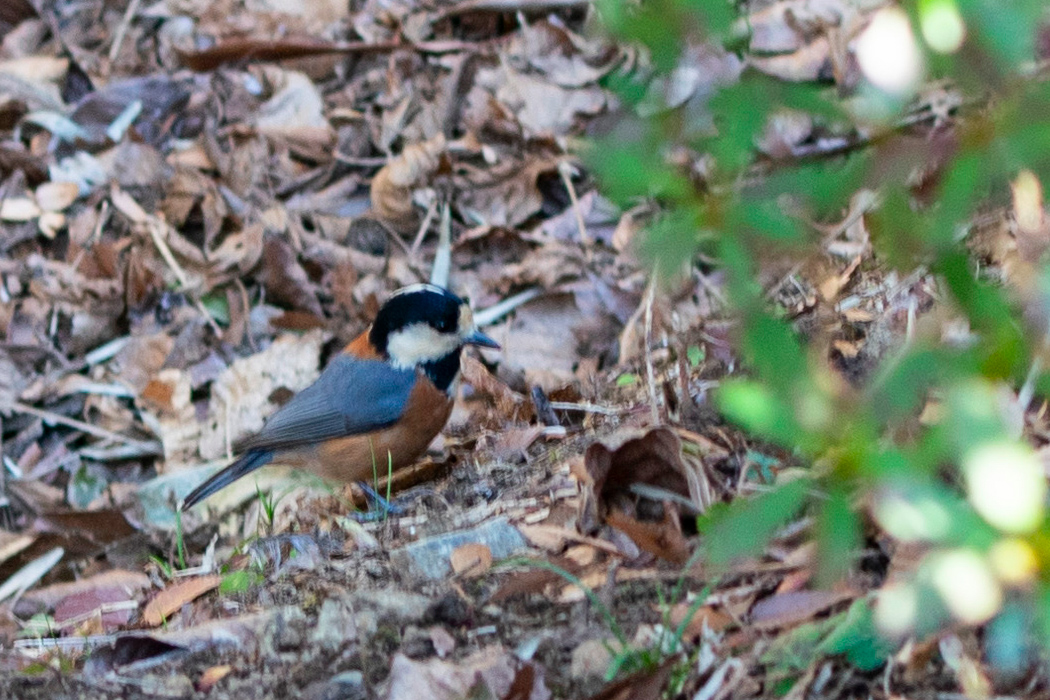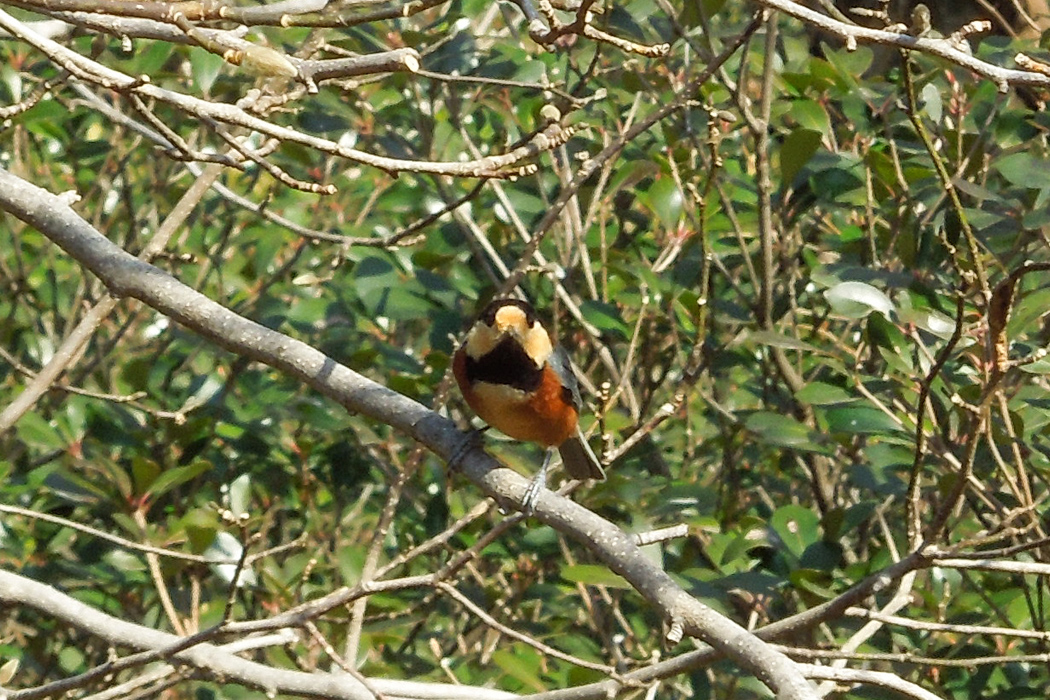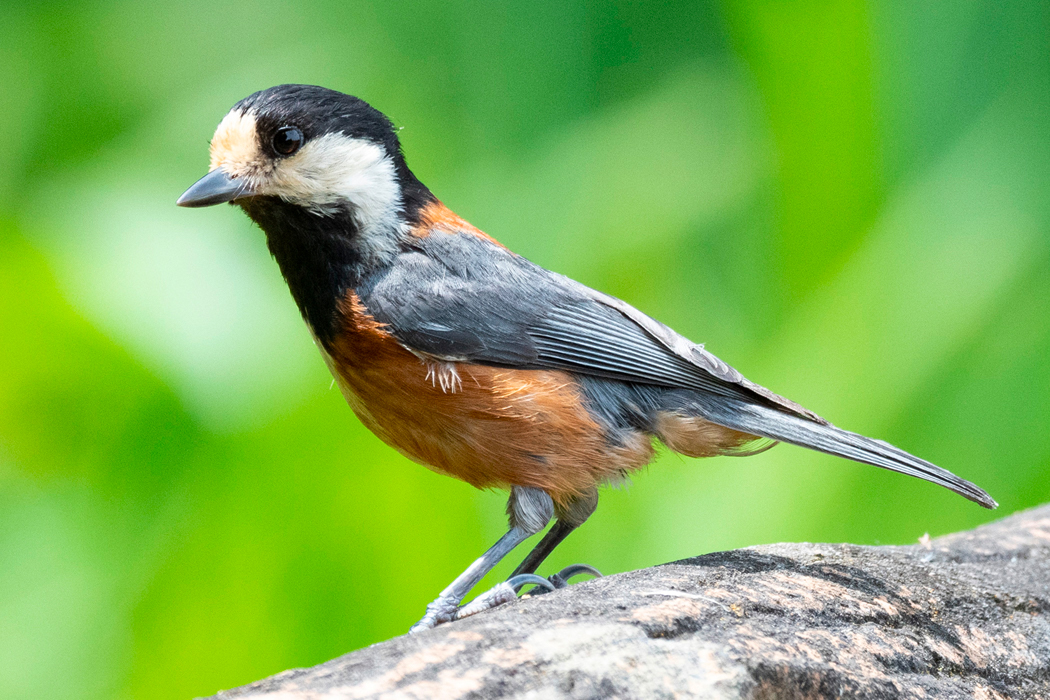
Varied Tit
orange belly and blue-gray wings.
| Scientific name | Parus varius |
| English name | Varied Tit |
| Japanese name | 山雀 |
| Classification | Aves |
| Classification details | Passeriformes Paridae |
| Full length | 13-15cm |
| Distribution | Nationwide except Ogasawara Islands |
Characteristics
A resident bird of the Tit family that inhabits broadleaf forests. The belly is orange and brown, and the wings and tail are bluish gray. The color of the head is black and white, with a white band running from the top of the head to the neck. It sometimes behaves by tapping tree branches with its beak.
Calls
"Two-two" and "beep-beep" in a slightly lower voice than a great tit. It is a wild bird with a friendly personality, and will approach humans and even ride on their hands. In the past, people kept them and taught them tricks such as drawing omikuji.
Listen
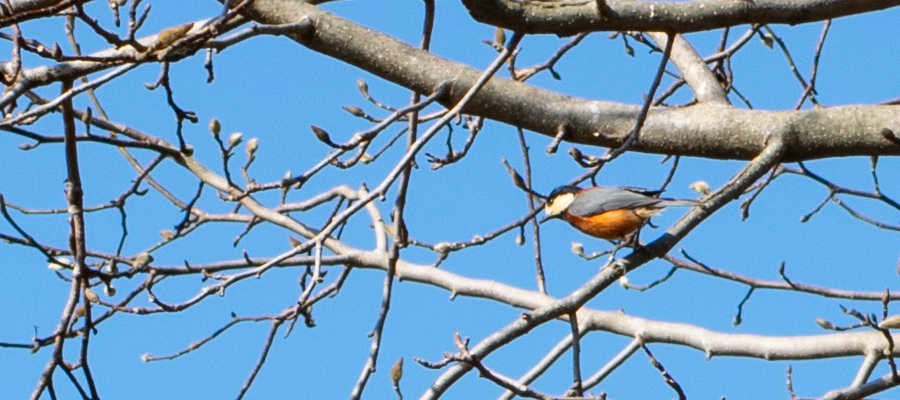
Ecology
Inhabits low-altitude broadleaf forests. The Japanese name "Sanjaku" comes from living in the mountains. It is often seen in flatland forests and city parks. They are omnivorous, moving from branch to branch and eating insects and spiders, as well as nuts. Store the styrax fruit. They build nests in holes made by Japanese Pygmy Woodpeckers or in tree cavities and breed from spring to summer.
Habitat
Yoyogi Park Bird Sanctuary
When I was observing wild birds at the "Bird Sanctuary" in Yoyogi Park, it flew nearby. It seemed to be accustomed to being a human, and even perched on a nearby branch that could be reached. It seemed to be circling the park at regular intervals, quickly jumping from branch to branch. When I was intent on photographing a Varied Tit, it didn't show up, and only flew when I was looking at unrelated scenery. In the end, I was able to take a close-up picture of them feeding on the ground inside the hedge.
Katakura Castle Ruins Park
Varied tit can be seen in Katakura Castle Ruins Park throughout the year. Creates small groups and appears while beating tree branches.
Pictures
Introducing a picture of Varied Tit.

Picture book
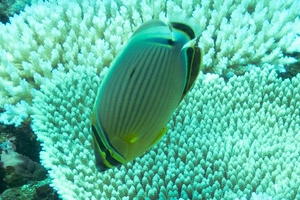
Oval butterflyfish
3 black streaks run down the body.......ead more.

Black-footed Albatross
Dark brown body with white eyes.......ead more.

Smew
The male's white plumage is beautiful.......ead more.

Eurasian Wren
Sings loudly for its small size.......ead more.

Zitting Cisticola
spread legs for balance.......ead more.
